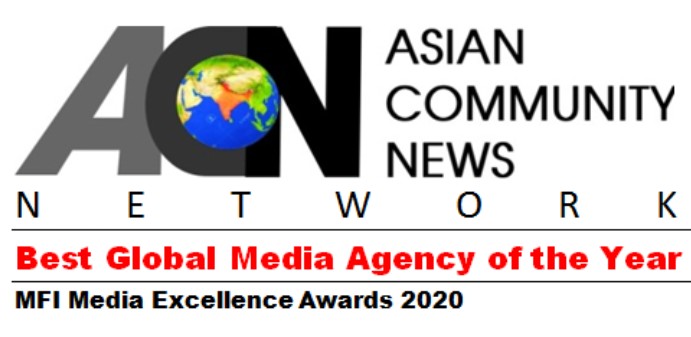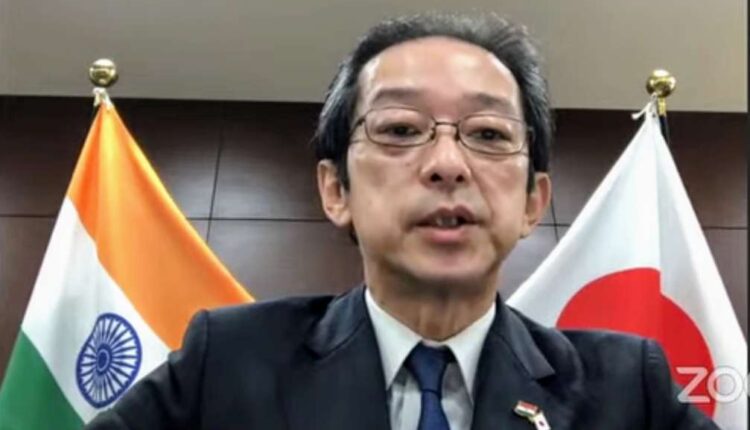India should ‘Act East’ with ASEAN to accelerate economic recovery: Japan
NEW DELHI: In a piece of advice, Japan has asked India to work more closely and have deepening relations with the ASEAN countries – Singapore, Vietnam, Philippines, Myanmar, Indonesia, and others for its dynamic economic recovery, and also to associate with the regional value chains.
Japan has also suggested India learn from the best practices introduced by the ASEAN countries that are frontrunners in attracting Japan’s investment and trade.
“I would also like to stress the significance of literally “acting east” with ASEAN countries. There are a number of reasons to do so… First, ASEAN continues to be a growth center of the world, where a number of Japanese companies are active. In order to accelerate India’s dynamic economic recovery and growth, deepening relations with ASEAN is more important than ever,” said Toshihide Ando, Minister and Deputy Chief of Mission, Embassy of Japan, New Delhi on Wednesday.
He was addressing “Digital Conference & Exhibition on India–Japan Business Partnership in the New World Order” organized by the Confederation of Indian Industry (CII).
“Second, by doing so, India can be better associated with the regional value chains. Today, there will be an important session on the resilience of supply chains, which I believe cannot be complete without discussing the role of ASEAN,” Toshihide Ando added.
It is mention-worthy here that India has hitherto stayed away from signing the Regional Comprehensive Economic Partnership (RCEP) – the world’s largest Free Trade Agreement (FTA), which was signed by 15 countries led by China, Japan, South Korea, Australia, New Zealand, and 10-country ASEAN group.
This development had triggered fears that India might miss the opportunity of being part of the regional value chains.
While delivering tips to attract more foreign investment especially from Japan, Toshihide Ando advised India to learn from the best practices introduced by the ASEAN countries.
Japanese foreign direct investment (FDI) in India reached its peak in 2019 at JY 624 billion, witnessed ups and downs since the year 2014.
It was JY 282 billion in 2014 and grew to JY 369 billion and JY 564 billion in the years 2015 and 2016 respectively but declined to JY 357 billion and JY 387 billion in the succeeding years 2017 and 2018 respectively.
However, the FDI stake and the number of industries of Japan in ASEAN is bigger than India.
“ASEAN has been a forerunner in attracting Japan’s investment and trade. We can learn from their best practices to further attract investment,” he added.
Toshihide Ando said in order to promote further economic activities between our two countries, it was critical that the business environment in India became even more stable and predictable.
“In this regard, I would like to draw your attention to the fact that some of the measures seem to have been introduced in a manner not conducive to our economic partnership. For example, restrictions have abruptly been imposed on the import of Japanese high-quality special steel necessary for the Indian manufacturing industry,” said Minister and Deputy Chief of Mission, Japan Embassy.
He warned that such measures could go against the larger goal of “Make in India”, simply because without high-quality intermediary goods, companies may face difficulty in making quality products.
“While I acknowledge the rationale behind the policy of “Self-Reliant India” and, as I stated, Japan can be its staunchest partner, I believe considerations from a long-term perspective can benefit us all,” Ando san added.
The CII’s Digital Conference & Exhibition on India–Japan Business Partnership in the New World Order” laid focus on the new and immediate business opportunities existing/emerging for Japanese and Indian companies in identified sectors, namely Science and Innovation, Auto & Auto Components, Textiles, Food Processing, Hi-tech, Startups, Chemicals, IT, Electronics and other strategic areas of collaboration.
The speakers who attended the inaugural session of the conference included Chandrajit Banerjee, Director General, Confederation of Indian Industry, Yasuyuki Murahashi, Chief Director-General, Japan External Trade Organization (JETRO), Vikram Kirloskar, Past President, CII, and Vice Chairman, Toyota Kirloskar Motor Pvt. Ltd, Osamu Onoikdera, Deputy Director-General for Trade Policy, Trade Policy Bureau, Ministry of Economy, Trade, and Industry, Government of Japan, Ms. Sumita Dawra, Additional Secretary, Department for Promotion of Industry and Internal Trade (DPIIT), Ministry of Commerce & Industry, Government of India, and Sanjay Kumar Verma, Indian Ambassador to Japan.



